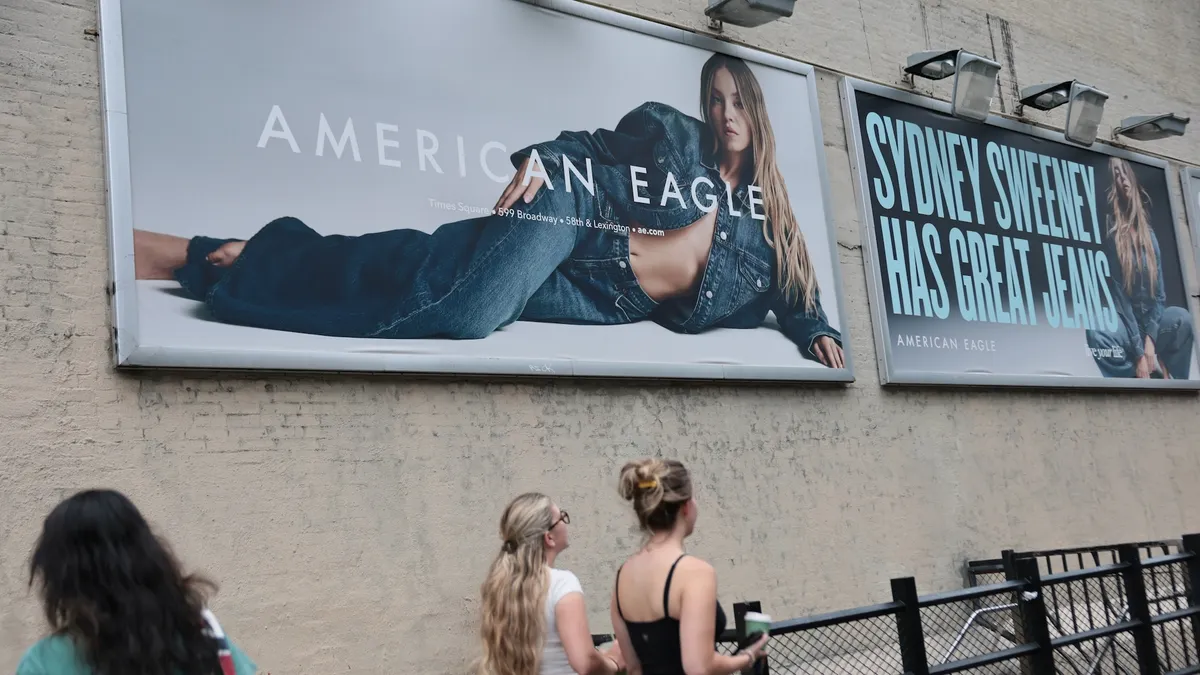With new leadership in place after exiting the public markets, Casper is focusing its strategy around one thing: becoming profitable.
“We’re not in the business of not making money anymore,” CEO Emilie Arel said at eTail’s Boston conference last week.
Arel took over the chief executive role from founder Philip Krim in November when the company announced it would be taken private by private equity firm Durational Capital Management. She first joined the DTC mattress brand as president and chief commercial officer in late 2019, just months before Casper filed for an initial public offering.
The brand had only been in the public markets for just over a month before a pandemic upended nearly every aspect of the retail industry. At the same time, the brand — which had revealed its net loss surpassed $92 million in 2018 — was focused on cutting costs, which included pulling back on its marketing spend.
But as consumers were forced to spend more time in their homes during the early days of the pandemic, they began to invest more in their personal spaces. Other retailers in the home sector were “pouring money into” their marketing budgets, Arel said. “We miscalculated. We made the wrong call as a leadership team. And so our competitors outgrew us.”
Casper, like many other DTC brands, struggled to reach profitability despite increased demand in the home sector. While its revenue grew 13% in fiscal 2020, the brand’s net loss neared $90 million. At the same time, its marketing expenses were $156.8 million, representing more than 30% of its total revenue for the year.
Its financial situation coupled with challenges from industry-wide supply chain problems, led Casper to ink a deal to go private.
“It was a very quick transaction. Really no one at the company knew what was happening,” Arel said. “My No. 1 priority was making sure people understood what going private meant, what private equity was all about, why it was a very good thing for us and our balance sheet.”
Now as a private company, the brand is focused on controlling costs, including cutting back on its marketing spend and leaning into its core product.
Over the past several years, Casper had moved beyond mattresses into products like dog beds, pillows, a smart nightlight and even CBD gummies intended to help consumers fall asleep — all in an effort to capture more share in what it called the “sleep economy.”
“Part of the issue at Casper over the last few years had been the shiny penny syndrome. ‘Oh, that’s very interesting. Let’s go do that.’ That is very confusing for people,” Arel said. Now, the brand is focused on being a mattress retailer only.
”The strategy was to be the Nike of sleep,” Arel said. “Nobody knows what that means. That sounds very exciting, but hard to execute on. We weren't making any money. We're not nonprofit … VC money is not falling from the ceiling anymore, we need to be very specific on what we're working on. And so moving from being a lifestyle brand — being sort of the Nike of sleep, selling to everybody — to: ‘We are a mattress retailer.’”
“The strategy was to be the Nike of sleep. Nobody knows what that means. That sounds very exciting, but hard to execute on."

Emilie Arel
CEO, Casper
The brand has also undergone changes in its people and leadership in order to have the right team in place to lead it into the future, especially now as consumers begin to pull back on discretionary spending. “Taking a company from zero to $50 million is very different than taking a company from $500 million to a billion,” Arel said.
The mattress category often shows signs of inflation and economic turmoil before other sectors because consumers will pull back spending on large purchases first. “This is the worst mattress market in over 20 years … We have to focus on what we can control and that's costs.”
That, Arel added, means the brand won’t open new stores anytime soon. Casper — which had previously announced plans to operate 200 stores across North America — has 73 stores right now and it will “sit there” at that number for at least another year due to the fact that its stores are very expensive to build.
“We did not build them in an efficient way,” she said. Even still, the brand sees value in its physical presence: The “store is the best representation of our brand. It's the best way to show all of our products. It's the experience we can control in a physical way,” Arel said, pointing to the fact that almost 80% of mattress purchases are bought in a place where you can test them out.
“These should be able to be profitable stores. They were run like showrooms in the past. So we've made small changes, which are very big changes, like putting the store associates on commission,” she said.
And while the brand’s strategy around controlling costs and focusing on the “hard things” might not be “exciting,” Arel said “a culture of frugality is very important.”
























